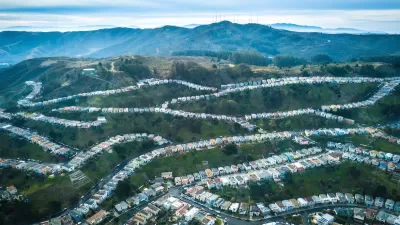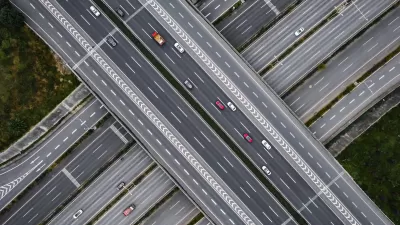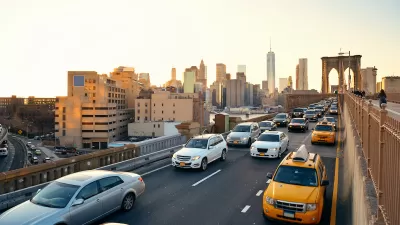Forget congestion pricing and higher gas taxes -- accurately priced pay-as-you-go auto insurance might be the best financial incentive tool for encouraging people to change their driving habits.
"Americans drive too much. This isn't a political or moral argument; it's an economic one..."
"[W]ith roughly three trillion miles driven each year producing more than $300 billion in externality costs, drivers should probably be taxed at least an extra 10 cents per mile if we want them to pay the full societal cost of their driving.
How can this be achieved? Higher tolls, especially variable tolls like congestion pricing, are one option. This seems to have worked well in London but was recently quashed in New York City, where the political hurdles proved too high.
A higher gas tax might also work. If a typical car gets 20 miles to the gallon, then the proper tax would be about $2 per gallon. But with the current high market price for gas and the political hysterics attached to it - well, good luck with that one.
This brings us to automobile insurance. While economists may argue that gas is poorly priced, that imbalance can't compare with how poorly insurance is priced."
"Aaron Edlin first noticed this imbalance more than 15 years ago. "I was a graduate student at Stanford," he says, "and I drove maybe 2,000 miles a year. But I paid roughly the same $1,000 as if I'd driven 10 times as much, which was a huge portion of my budget." A few years later, Edlin was serving on the President's Council of Economic Advisers when he floated an idea that economists had long found attractive: pay-as-you-drive (PAYD) insurance. It seemed like an obvious solution. Since no one expects to pay the same price for, say, a 60-minute massage as they pay for a 15-minute massage, why should people pay the same for insurance no matter how many miles they drove?
"The objection within the White House," Edlin recalls, "was there wasn't good academic research on the subject."
Edlin and a few others, including Jason Bordoff and Pascal Noel at the Brookings Institution, have since done such research. It makes a compelling case that PAYD insurance would work well, reducing the carbon emissions, congestion and accident risk created by too much driving while leading drivers to pay the true cost of their mileage. Bordoff and Noel put the total social benefit at $52 billion a year."
FULL STORY: Not-So-Free Ride

Depopulation Patterns Get Weird
A recent ranking of “declining” cities heavily features some of the most expensive cities in the country — including New York City and a half-dozen in the San Francisco Bay Area.

Pennsylvania Mall Conversion Bill Passes House
If passed, the bill would promote the adaptive reuse of defunct commercial buildings.

California Exodus: Population Drops Below 39 Million
Never mind the 40 million that demographers predicted the Golden State would reach by 2018. The state's population dipped below 39 million to 38.965 million last July, according to Census data released in March, the lowest since 2015.

Google Maps Introduces New Transit, EV Features
It will now be easier to find electric car charging stations and transit options.

Ohio Lawmakers Propose Incentivizing Housing Production
A proposed bill would take a carrot approach to stimulating housing production through a grant program that would reward cities that implement pro-housing policies.

Chicago Awarded $2M Reconnecting Communities Grant
Community advocates say the city’s plan may not do enough to reverse the negative impacts of a major expressway.
City of Costa Mesa
Licking County
Barrett Planning Group LLC
HUD's Office of Policy Development and Research
Mpact Transit + Community
HUD's Office of Policy Development and Research
City of Universal City TX
ULI Northwest Arkansas
Town of Zionsville
Urban Design for Planners 1: Software Tools
This six-course series explores essential urban design concepts using open source software and equips planners with the tools they need to participate fully in the urban design process.
Planning for Universal Design
Learn the tools for implementing Universal Design in planning regulations.


























